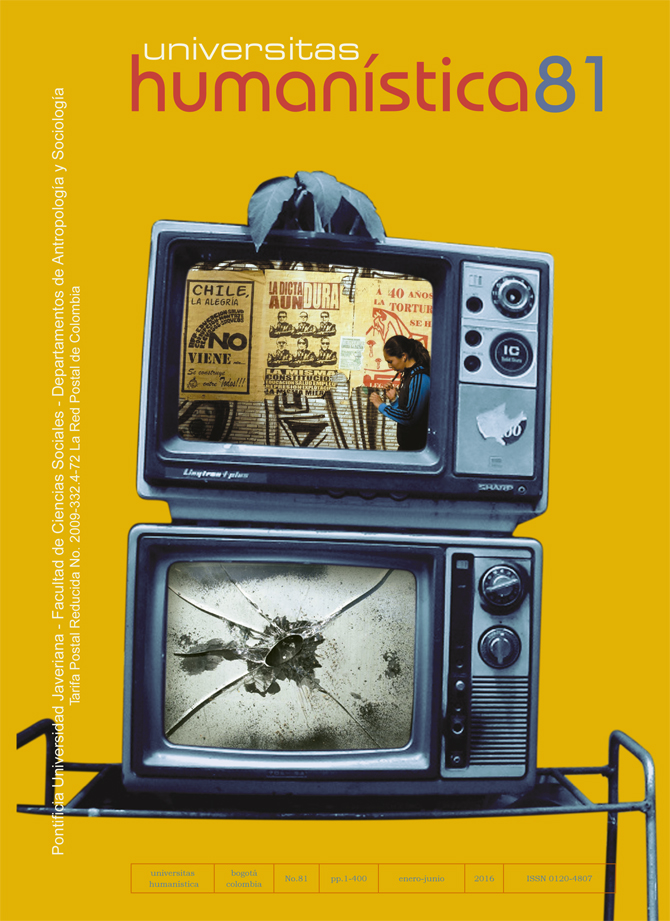Resumen
La Canasta –una red agroecológica– es un asunto solidario y colaborativo que conecta productores locales agroecológicos de baja escala con consumidores de Bogotá. Se trata de un proceso que construye vínculos vitales para ambas partes, que se materializan, entre otros, en unas comunicaciones escritas que el equipo base de La Canasta sostiene con los consumidores de forma semanal. En este artículo, y apoyándome en la teoría feminista del cuidado aplicada a los estudios sociales de ciencia y tecnología, argumento que La Canasta cuida y, en ese cuidado, contribuye a mantener pro-comunes –bienes comunes– de varias índoles. En este indagar por los pro-comunes que promueve esta red agroecológica, me pregunto por la manera en que ese tejido generado por las comunicaciones del equipo de La Canasta involucra principios del ethos del cuidado y cómo, de esa manera, produce otro pro-común.

La revista Universitas Humanística se encuentra registrada bajo la licencia Creative Commons Reconocimiento 4.0 Internacional. Por lo tanto, esta obra se puede reproducir, distribuir y comunicar públicamente en formato digital, siempre que se reconozca el nombre de los autores y a la Pontificia Universidad Javeriana. Se permite citar, adaptar, transformar, autoarchivar, republicar y crear a partir del material, para cualquier finalidad (incluso comercial), siempre que se reconozca adecuadamente la autoría, se proporcione un enlace a la obra original y se indique si se han realizado cambios. La Pontificia Universidad Javeriana no retiene los derechos sobre las obras publicadas y los contenidos son responsabilidad exclusiva de los autores, quienes conservan sus derechos morales, intelectuales, de privacidad y publicidad.
El aval sobre la intervención de la obra (revisión, corrección de estilo, traducción, diagramación) y su posterior divulgación se otorga mediante una licencia de uso y no a través de una cesión de derechos, lo que representa que la revista y la Pontificia Universidad Javeriana se eximen de cualquier responsabilidad que se pueda derivar de una mala práctica ética por parte de los autores. En consecuencia de la protección brindada por la licencia de uso, la revista no se encuentra en la obligación de publicar retractaciones o modificar la información ya publicada, a no ser que la errata surja del proceso de gestión editorial. La publicación de contenidos en esta revista no representa regalías para los contribuyentes.


